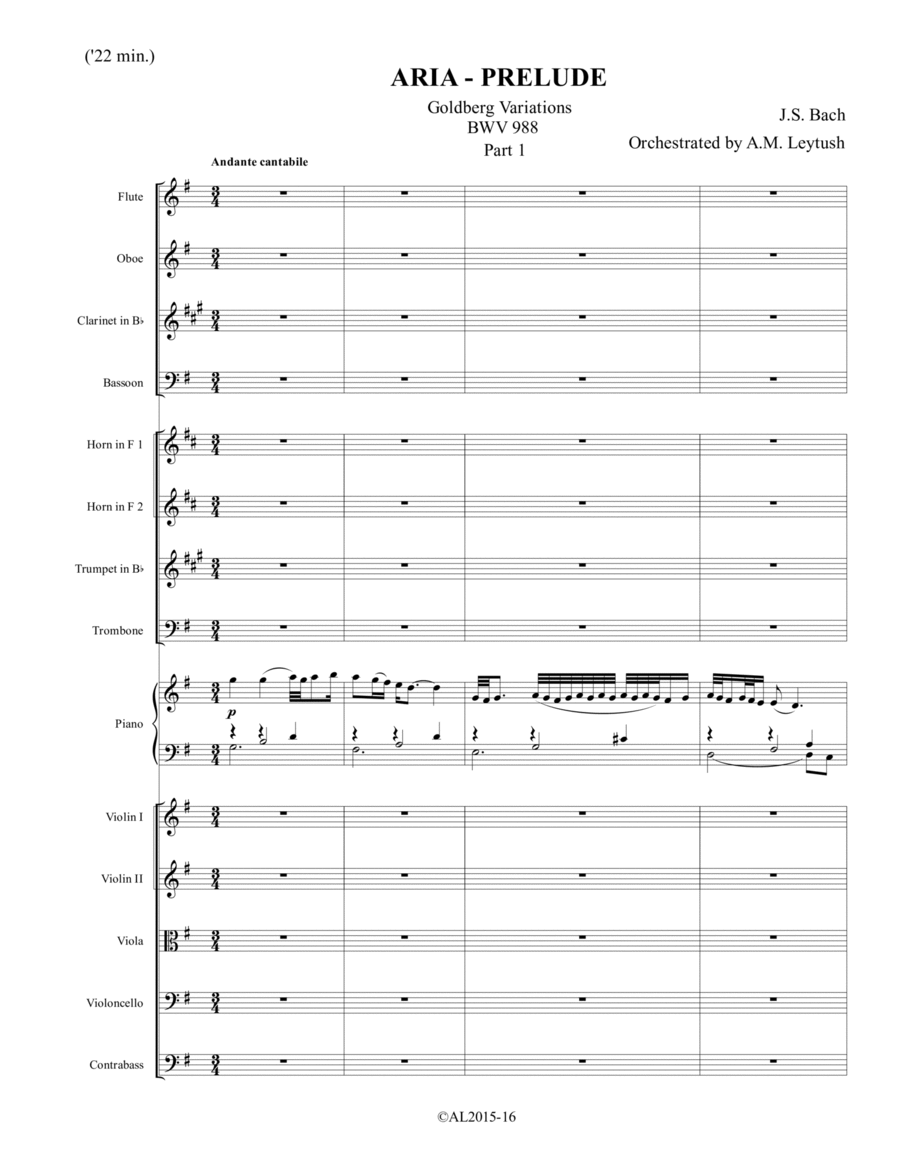Chamber Orchestra - Level 3 - Digital Download SKU: A0.1174276 By Arkady Leytush. By I. S. Bach. Arranged by Arkady Leytush. Baroque. Score and parts. 325 pages. Arkady Leytush #774439. Published by Arkady Leytush (A0.1174276). Orchestra: Flute, Oboe, Clarinet in B, Bassoon, 2 Horns, Trumpet, Trombone, Violins 1st, Violins 2nd, Violas, Cellos, D. BassI have been thinking about the plan to make an orchestral transcription of Goldberg Variations for a long time, as one of the examples of collective music-making, where most of the work would be typical of the style of a piano concerto, and would also include chamber ensembles both with a pianist and solo. Total duration (with some repetitions) - 50 min. Some variations are played: Piano + Orchestra (1,2,3,4,6,8,10,11,12,14,16,18,20,21,24,25,26,27.28,29) Orchestra only (19, 30), Brass only (4), Wood winds only (9), Brass + Wood winds only (22), Piano + Soloists from the Orchestra (7, 15, 17) Piano only (13) Prelude-Aria (Theme) begins with the pianist and after 8 measures the orchestra gradually turns on. The same Postlude-Aria theme at the end of the composition has an inversion orchestration, when everyone starts playing together (Piano + Orchestra) and then the orchestra gradually stops playing and only one pianist remains.Audio (mp3) incudes excerpts of Variations ## 1,2,4,5,6,7,11,14,19,20,21,22,28,29,30.
